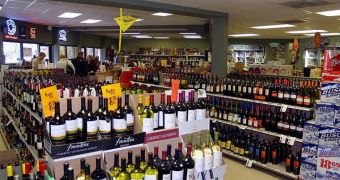In a study conducted by researchers at the University of Chicago, it was determined that the amount of stress a person is suffering from determines the effects that consuming alcohol will have on their brain.
The new investigation may give experts a new explanation for why some drinkers prefer to use more alcohol when they are stressed, whereas others wouldn't dream of touching an alcoholic beverage in those circumstances.
Simply put, stress determines whether drinkers will feel sleepy, and will want to go to bed, or if they will receive a jolt of energy, and will go on to party for the entire night. The effects of stress on alcohol consumption patterns have been studied only in passing.
Most alcohol-related studies are conducted in the lab, where confines are tightly-controlled, and therefore subjects usually react in one of two ways. However, when experts factored stress into the equation, they soon realized that people could react opposite than how they would otherwise.
Test subject can either feel energized, excited, talkative and vigorous or drowsy and unable to communicate, say UC behavioral pharmacology researcher Emma Childs, a coauthor of the study.
But the usual reactions people have can turn 180 degrees when stress is involved, the team writes in a paper that will appear in the October issue of the medical journal Alcoholism: Clinical and Experimental Research, LiveScience reports.
In the new set of experiments, 25 males in their mid-20s were separated into two groups, one that consumed alcohol under non-stressful situations (playing a game of solitaire), and another that drank while in a stressful environment.
Not all of the participants were administered alcohol. In order to maintain study integrity, the experts used an intravenous drip to inject either the alcohol equivalent of 2-3 beers, or a saline solution.
Heart rate, blood alcohol levels, stress hormone levels and blood pressure levels were measured in study participants as the experiments were unfolding. Test subjects were also asked to fill in a questionnaire gaging their anxiety, calmness, and desire for more alcohol.
Childs says that this experimental setup allowed researchers to analyze only the neurological effects of alcohol, eliminating the feel-good expectations that people normally associate with drinking the stuff.
The team leader says that some of the participants who experienced stress were more likely to want more alcohol, because the situations they were exposed to tended to diminish the energy boost they usually got from drinking.
“If you have an acute stress, then at some point, you learn to come home and have a glass of wine or a drink – it becomes a learned response. It's going to increase your risk for stress-related disorders,” Childs concludes.

 14 DAY TRIAL //
14 DAY TRIAL //